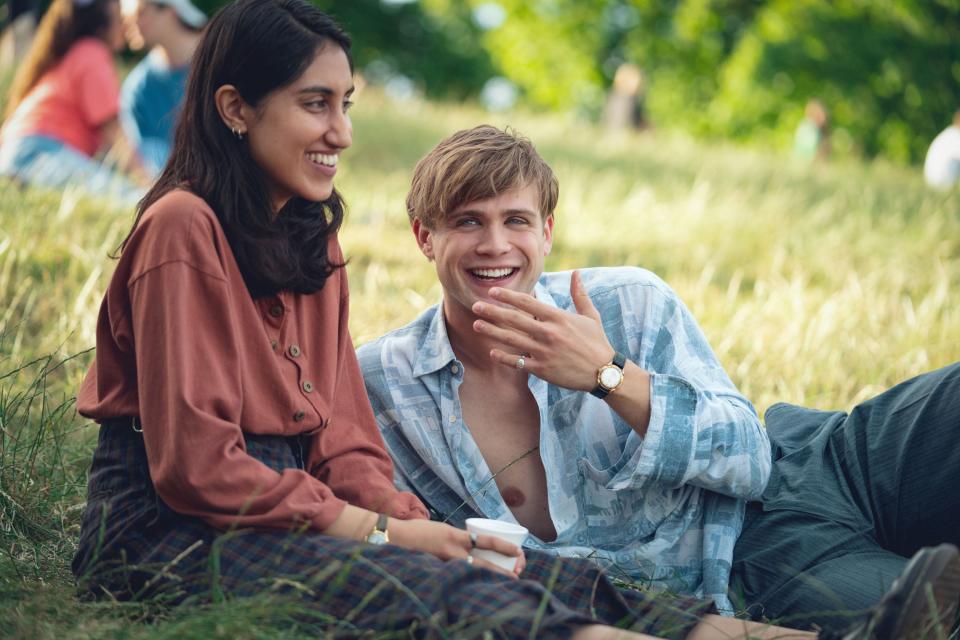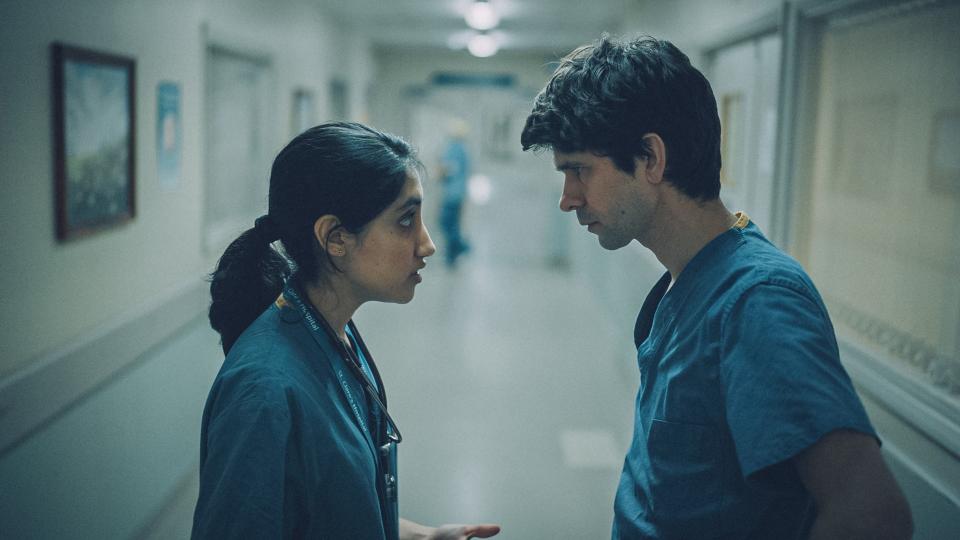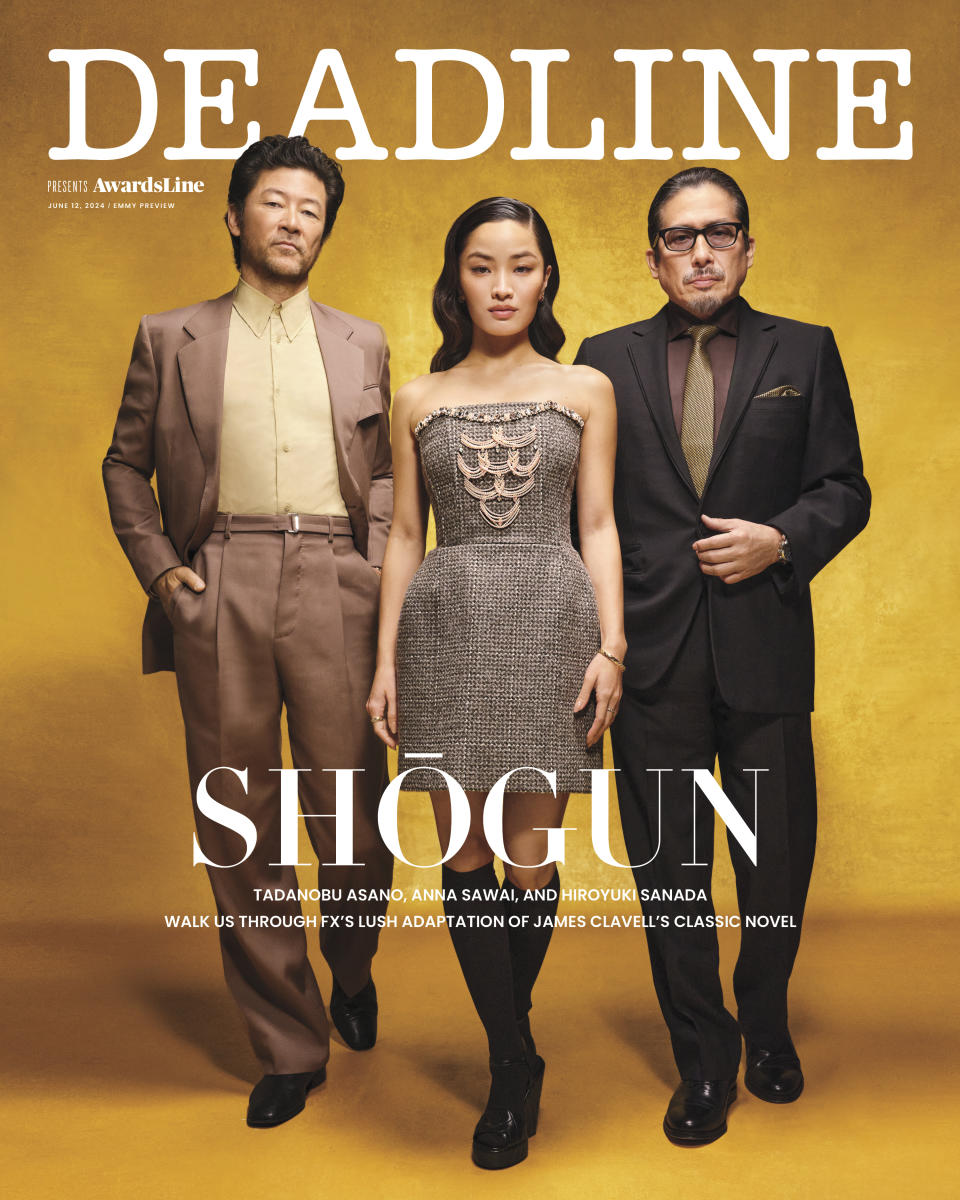‘One Day’ Star Ambika Mod On Her Crazy Year, How Comedy Has Helped Her Career & Details Of Her Upcoming ‘Playdate’

Ambika Mod is not prepared to be a footnote in 2024. After hustling through improv and a breakout turn in BBC miniseries This Is Going to Hurt, this year saw her biggest hit yet — the lead role of Emma Morley in Netflix’s adaptation of David Nicholls’ novel One Day. Paired with Leo Woodall’s Dexter Mayhew, Mod sensitively plays Emma’s loves, wins and failures over 20 years. As a twenty-something figuring out her place in the world, Mod’s own journey has overlapped with Emma’s more than once. Here, she talks about growing up, growing old and wishing people would focus less on her race.
DEADLINE: How has life been since the release of One Day?
More from Deadline
AMBIKA MOD: It’s really mad, to be honest. I had an idea it would be big because it was on Netflix, but I didn’t think people would connect to it the way they are. I don’t want to sound self-important, but the goal is for people to respond to your work, and I’m glad people think we’ve done justice to the book.
I’ve also been learning to set boundaries lately. With a show like One Day where people are so emotionally invested, as an actor sometimes people assume they have a bit of you. There are certain times people ask for photos and I do say no. No one really teaches you this stuff, and it’s personal to everyone, but yes, I’ve been figuring out the public-facing side of it.
DEADLINE: How has being a person of color in a story that previously portrayed white characters impacted you?
MOD: The color of my skin has been a massive part of the discourse when I was doing press for this show. [Prejudice] can be such a subtle but insidious double-edged sword that most people wouldn’t even notice it.
When people talked about my white co-star [Leo Woodall]’s performance, they would often talk about his acting and the quality of his work, whereas with me — not all the time — it was about how amazing it was that I’m brown, and what a change-making casting choice it was. I would think, ‘What about my performance and my work?’
I would say my being British actually informed my experience of playing Emma Morley more than my being Indian, although I wouldn’t completely erase it from the equation. I feel very privileged and passionate about talking about representation, but on the other end of the spectrum, I’m here to do a job just like my white counterparts, and I want my work to be appreciated and reviewed in the exact same way.
It’s been challenging because people just aren’t ready to see people who aren’t beautiful white women on screen. I also saw that it wasn’t just me, they tear down anyone who doesn’t fit the norm that has been fed to us by this industry for so long. It’s a larger internal problem, but it’s not my problem to fix single-handedly.

DEADLINE: Do you feel like there’s an unspoken pressure to speak for all brown people in a way?
MOD: Absolutely. I think that is, sadly, the reality for many people of color. Anyone who feels that their identity is marginalized isn’t meant to be a spokesperson for a much bigger group of people. I would never have thought to be the same as any South Asian girl who comes up to me in the street and says, “I love Emma, watching One Day is the first time I saw a South Asian girl in this way.” I’m so glad they had that experience watching the show, but I also recognize that they are their own person.
DEADLINE: So why do you personally love Emma?
MOD: Anyone who knows the book knows that One Day is Emma’s book. The trope of the heroine in the rom-com genre is either the Manic Pixie Dream Girl or the woman who changes herself for the man or gets a makeover. Emma knows her best qualities are her intelligence and her wit, and she uses that. She never dumbed herself down. She never made herself small. In the beginning, she lacks confidence, feels like an outsider, and she’s the underdog in a lot of ways. I think that’s why Emma being played by a woman of color ultimately adds complexity to her role. But I love her so much because she grows into her own person, and she doesn’t grow in relation to Dexter. Their relationship is really important to her life on a grander scale, but in the day-to-day, this is a story about growing up. This is so cheesy, and I hate saying this, but Emma is very much the hero of her own life.
DEADLINE: Dex and Emma embody the popular concept of ‘right person, wrong time’. Do you think if it was the right person, there wouldn’t be a wrong time?
MOD: No, I think timing is everything in relationships.
The likelihood of two people being in love with each other at the exact right time, being ready for that love at a time like that, almost seems impossible. I’ve always believed in ‘right person for right now’ — if there’s a person at all — rather than this idea of an eternal love. Emma and Ian turned out not to be right for each other in the long run, but they were in the moment they met.
There’s a lot of judgment around Emma and how she waited for Dexter and decided to take him back. These are two very specific characters with specific lives, and the show doesn’t claim to comment on what love should look like. This is just David Nicholls’ story.
DEADLINE: Emma works at an assortment of jobs before finding her calling to be a writer. Did that remind you of your own time working at John Lewis and Condé Nast before your big break?
MOD: I drew on a lot of personal experience, for Emma’s early days especially. There’s the whole thing of wanting to be a specific kind of artist but feeling like you are a tiny fish in a massive pond — she doesn’t have money, she doesn’t have connections, she’s not white, she’s not probably considered conventionally attractive. That’s definitely something I relate to, especially because she probably has to work her arse off to get a fraction of what someone like Dexter is given free of charge.
In my early 20s, I would wake up at 6, work a full-time job, go to a gig, be home by 11:30, and do it all again the next day. On the weekends I would be writing, and I went to the Edinburgh Fringe Festival every summer. I honestly don’t know where I got that energy from, because I could never do that now. I was just f*cking ambitious, I suppose.
There’s a real liberty and shamefulness in life, to being young and wanting something so badly. I look back and the sheer determination of it astounds me. My career is the most important thing in the world to me, and I thought, ‘If I stop, I’ll stop [for good],’ so I just kept going.

DEADLINE: How do you think your comedy and improv background has informed your acting?
MOD: Even if somehow I end up doing the most serious film that there ever was, my comedy training will inform it in some way. I never want to stop performing live comedy, especially improv, because it teaches you that you can fail. I remember shortly after This Is Going to Hurt came out, I was on cloud nine. Then I did an improv gig and we died on our arses. And I thought, “Oh, we can still fail!”
Comedy has also given me good instincts. On One Day we would be shooting 10 pages of script in a day, which is unheard of. There would rarely be time to go home after a 16-hour day and dissect 10 more pages, so I would just have to trust my instincts and my connection with my co-star.

DEADLINE: What scenes were hardest to shoot for One Day?
MOD: There were so many scenes that I read and thought, “I’m just a comedian, who do I think I am to be doing these heightened, dramatic set pieces?” From my perspective, the argument on the street in Episode 7, and the breakup with Ian in Episode 8 were the hardest because they were so emotionally pivotal to Emma. These were the last episodes before we see her transform into a grown-up, realized woman, so it felt really important to get right. The maze scene in Episode 10 was almost 30 pages long, and we filmed it in a freezing, damp warehouse in West London. You can’t see it, but I had UGG boots and leggings on under my dress. We shot the whole thing in two days, so we had to know our stuff. A lot of the show was honestly like doing theater, in a way.
DEADLINE: Where do you see your career going next?
MOD: My next project is Playdate with Jim Sturgess, who played Dex in the One Day movie. He was quite supportive of the show actually and texted me that he enjoyed watching it.
I would love to do something chaotic and absurd and off the wall to show a side of myself people aren’t used to. At this point in my life, I want to feel the same way about my next project as I did about One Day, where I’m playing a meaty, interesting character that exists in her own right. That’s set a very high bar, and I’ve been very lucky to have that so early on in my career. I’m in no rush, but I am ready to find the thing that excites me again.
Best of Deadline
'House of the Dragon' Season 2 Release Schedule: When Do New Episodes Air?
'The Boys' Season 4 Release Schedule: When Do New Episodes Air?
Sign up for Deadline's Newsletter. For the latest news, follow us on Facebook, Twitter, and Instagram.
